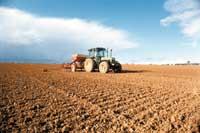Challenges of organic farming
2001/04/01 Mendiburu, Joana - Elhuyar Zientziaren Komunikazioa
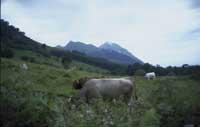
Members of the Earth Association tomorrow launched a program to define the viability and future of biological agriculture about five years ago. It is a project divided into five areas that aims to measure the viability of this type of production, its capacity for integration in the territory, its transmission, its autonomy and its respect for the environment. In short, like all areas in which it extends, it is worth demonstrating what has been said over the years on biological agriculture. Research in all areas of the program is not yet fully completed, but at least its environmental impact has been worked out. This work was carried out by the French national institute Cemagref between 1998 and 1999, but the results remain valid. The study compared 40 farms dedicated to conventional agriculture and 40 to organic farming.
In the words of farmer Manrique Ahurtiko, "although farmers generally agree with the results, Cremagref has only taken into account the amount of treatments that are performed to protect plants and not the toxicological and ecological impact of products used in treatments." As is known, synthetic products have a longer toxicological and ecological impact and, therefore, more harmful, aspect that has not been evident in the study. In organic agriculture, pesticides, herbicides and insecticides are prohibited and the products used have a lower impact, so sometimes more treatments are performed but the environmental impact is much lower.
Overall good results for organic farming
The objectives of organic farming are not to alter water quality, maintain soil fertility, protect biodiversity and reduce energy consumption. All these areas have been analyzed in this study and, as expected, the results show that biological exploitation is much more ecological. In addition, the results of conventional farming farms are much more heterogeneous.
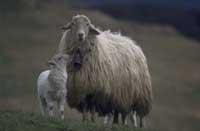
Among the producers of organic agriculture, the best results were those of farms that produce different types of vegetables and operate in different types of livestock, while the worst were grape producers. In fact, grape producers of organic farming use a copper mixture for the treatment of grapes, heavy element so the results have not been good. However, this observation was considered a lesson and currently has its own weather station to reduce the number of treatments. In this way, they see whether or not there are adequate weather conditions for the parasite that occurs in the vine and only do so when it is really necessary.
A black or white future?
Organic farming has gained fame and prestige, especially in the place of crises in the food industry and it seems that the market is growing. At the same time, more growers are targeting this productive system and more and more people are encouraged to buy biological productions. However, it cannot be denied that they are expensive products and that, to a large extent, only those who still have a fairly high economic capacity can acquire them.
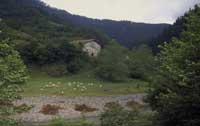
But, also, for better or worse, those who know the market well claim that it is a changing feature. Supermarkets and international food industries are interested in this type of production and its introduction in this market will mean great changes. Their only goal will be to make money and banish the philosophy of organic farming. Farmers who have so far adapted to organic farming have a great conscience, but it is clear that if you want you can make a biological-intensive agriculture.
In this sense, those who long ago bet on organic farming see a new concern. According to Manrique, "we are also afraid that industrialists who do not respect the philosophy of organic agriculture will not begin to take this path. If only the economic perspective is taken into account in the farmer's strategy, as in conventional agriculture, there will be a high risk of suffering a great deviation."
After so many jobs in defense of the quality of their products over the years, those who have worked for organic farming have the time to collect the fruits they deserve, as long as the coveted do not turn the market upside down.
Sustainable and profitable agriculture
The Earth Association of Tomorrow (BLE) was born in 1993 with the aim of promoting a more sustainable and autonomous crop respecting the environment more. Although at first there were few, it currently has 50 partners and two boosters. They are very active and organize courses and services that offer about 110 crops.
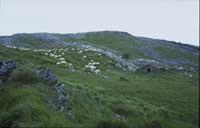
According to the animator of Maite Goienetxe, its objective is to inform and train for the development of an autonomous, profitable and sustainable agriculture. They do not want all farmers to start making biological from morning to night, because it is impossible to leave aside the productive system they have carried out from the age of 40 and start suddenly to make organic farming. However, thanks to their work, the number of farmers doing organic farming is growing. In 1993 there were only two or three and currently in Iparralde there are 31.
In addition, thanks to the courses they organize, they encourage teamwork, encourage the exchange of ideas and the incorporation of growers to alternative production systems.
For example, in order for the sheep's main food to be grass, they have managed to gather the sheep producers. Thanks to teamwork the use of corn is being ruled out and the grass that is not lacking in Iparralde has become again the main food of the sheep. In this group, which began three years ago, some sheep producers have become part of the biologist. Organic farming has also been achieved in the vineyards of Irulegi. These vineyards are located on the mountain and although initially presented some problems, 10% of Irulegi grapes are produced in a biological way. According to Maite Goienetxe, "we work taking into account the relations between land and production."
On the other hand, Biolur Nafarroa and Biolur Gipuzkoa collaborate with the objective of improving the marketing of products, the market of organic seeds and techniques for grape producers. As for marketing, they plan to make a biological market for this or next year.
Published in the supplement Natura de Gara

Gai honi buruzko eduki gehiago
Elhuyarrek garatutako teknologia




